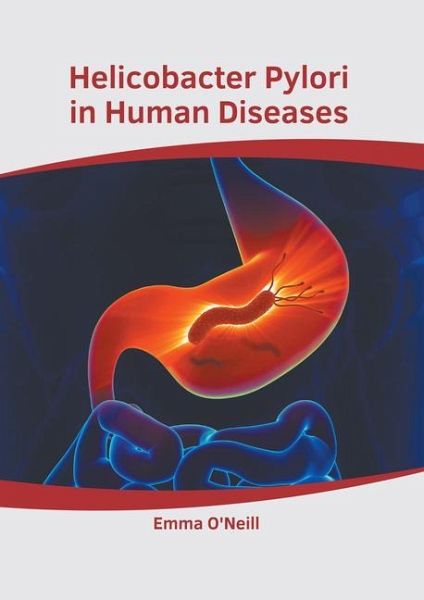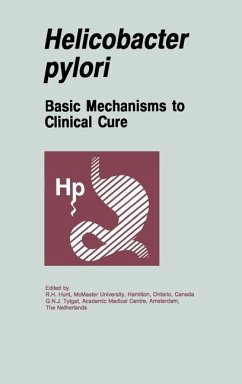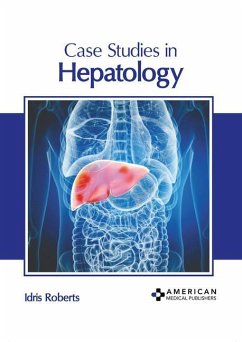
Helicobacter Pylori in Human Diseases
Versandkostenfrei!
Versandfertig in über 4 Wochen
123,99 €
inkl. MwSt.

PAYBACK Punkte
62 °P sammeln!
Helicobacter pylori is a gram-negative microaerophilic bacterium that is found in the stomach. It is associated with gastric ulcers, chronic gastritis, duodenal ulcers and stomach cancer. Almost 85% of the people infected by H. pylori do not experience symptoms and complications. Acute cases of infection may present themselves as an acute gastritis with nausea or abdominal pain. These symptoms may progress into chronic gastritis, nonulcer dyspepsia, nausea, stomach pains, bloating, belching and black stool. Infection with H. pylori is also associated with colorectal cancer and colorectal polyp...
Helicobacter pylori is a gram-negative microaerophilic bacterium that is found in the stomach. It is associated with gastric ulcers, chronic gastritis, duodenal ulcers and stomach cancer. Almost 85% of the people infected by H. pylori do not experience symptoms and complications. Acute cases of infection may present themselves as an acute gastritis with nausea or abdominal pain. These symptoms may progress into chronic gastritis, nonulcer dyspepsia, nausea, stomach pains, bloating, belching and black stool. Infection with H. pylori is also associated with colorectal cancer and colorectal polyps. The testing for H. pylori may be done using both invasive and non-invasive methods. Stool antigen tests, blood antibody tests, carbon urea breath tests and endoscopic biopsy are the methods for detecting infections with H. pylori. Rising antibiotic resistance has also increased the demand for alternate therapeutic strategies, such as vaccinations. The standard first-line therapy for H. pylori infections consist of proton-pump inhibitors and antibiotics. This book includes some of the vital pieces of work being conducted across the world, on various topics related to Helicobacter pylori infection. It provides significant information on H. pylori to help develop a good understanding of its role in human diseases. The book is appropriate for students seeking detailed information in this domain as well as for experts.












